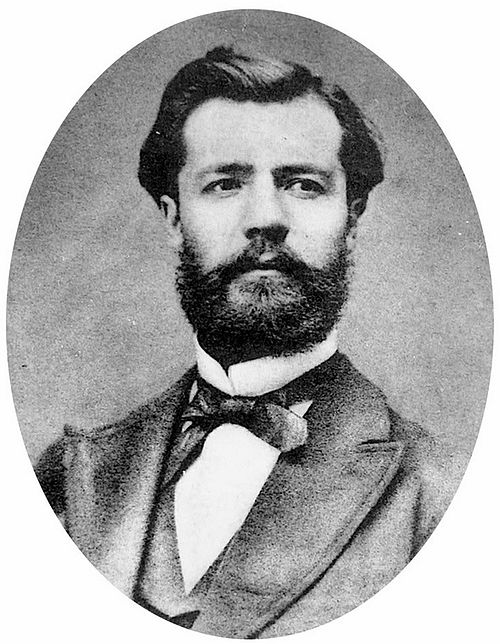
Introduction: The Father of Modern Management
Henri Fayol lived from 1841 to 1925, and even today he gets called the father of modern management. That title didn’t just drop out of thin air; it comes from his early push to treat management as its own, separate study.
The guidelines he enumerated back then are still echoed in boardrooms today, and he rose up the ranks to become the manager of an entire mine.
Who Was Henri Fayol?
In order to qualify for his position, Henri Fayol attended the Saint-Étienne National School of Mines to gain expertise in the arduous mining industry. That hands-on background gave him a hard-won feel for how teams really work under pressure. In 1916 he boiled his ideas down to fourteen tidy rules, publishing them in the little book General and Industrial Management. Those fourteen principles still pop up in management classrooms a century later.
The 14 Principles of Management Explained
1. Division of Work
- Definition: Breaking a large assignment into narrower tasks so that speed and output both get a noticeable lift.
- Modern Example: Georgia Tech Athletics improved their season ticket sales by 80% through specialized sales processes
- Application: Enables workers to become experts in their specific roles
2. Authority and Responsibility
- Definition: The right to command balanced with the need to finish projects.
- Modern Example: The selection of Tim Cook as CEO of Apple serves as an example of how authority and accountability are aligned.
- Implementation: Managers must have both the power to direct and the accountability for outcomes
3. Discipline
- Definition: Adherence to organizational rules and standards
- Example: It is clear that IBM has excellent organisational control because Ginni Rometty was the driving force behind the company’s successful transition to cloud computing.
- Impact: vital to upholding discipline and accomplishing organisational objectives
4. Unity of Command
- Definition: A single superintendent should provide instructions to all employees.
- Application: Prevents confusion and conflicts in the workplace
- Benefit: Creates clear lines of communication and accountability
5. Unity of Direction
- Definition: Teams with similar objectives should work under one plan and leader
- Implementation: Ensures coordinated effort toward common goals
- Example: Marketing teams working under a single strategy and leadership
6. Subordination of Individual Interests
- Definition: Organization’s interests take precedence over individual interests
- Modern Application: The effective strategy change at Microsoft under Satya Nadella
- Impact: Promotes organizational cohesion and collective success
7. Remuneration
- Definition: Fair compensation for work performed
- Implementation: Competitive salaries and benefits packages
- Benefit: Helps attract and retain talented employees
8. Centralization
- Definition: The balance of decision-making power between management levels
- Application: varies according to the size and structure of the organisation.
- Example: Amazon’s centralized logistics and customer service operations
9. Scalar Chain
- Scalar chain: All supervisors are arranged in a hierarchy from top to bottom of the hierarchy.
- Implementation: Structured communication channels
- Benefit: Ensures smooth flow of information and decisions
10. Order
- Definition: Proper organization of resources and personnel
- Application: Systematic arrangement of workplace elements
- Impact: Maximizes efficiency and reduces waste
11. Equity
- Definition: Fair treatment of all employees
- Example: PepsiCo’s focus on diversity and equity in leadership roles
- Benefit: Promotes loyalty and motivation among workforce
12. Stability of Tenure
- Definition: Maintaining low employee turnover
- Implementation: Focus on employee retention and development
- Impact: Enhances organizational efficiency and knowledge retention
13. Initiative
- Definition: Encouraging employee creativity and innovation
- Application: Empowering employees to propose and implement ideas
- Benefit: Drives innovation and problem-solving capabilities
14. Esprit de Corps
- Definition: Promoting team spirit and unity
- Implementation: Team-building activities and collaborative culture
- Impact: Enhances workplace morale and productivity
Modern Relevance and Applications
In 2023, Fayol’s principles continue to emerge in boardrooms, startup environments, and manufacturing settings. Managers still lean on them because the ideas feel tidy, friendly, and strangely timeless.
People in manufacturing, e-commerce, healthcare, and tech quietly borrow from his notes whenever they sketch new policies or design org charts. That cross-industry buzz shows the principles stretch well beyond the early-1900s Paris where Fayol was jotting them down.
- Contemporary management practices
- Business education curriculum
- Organizational structure development
- Leadership strategies
- Team management approaches
Conclusion
Henri Fayol first sketched out 14 rules for managers back in the early 1900s, yet they still feel fresh. His ideas land squarely in the real world-planners, supervisors, and even front-line workers can pick them up without fuss. Use his guidelines, and you’re likely to squeeze out more speed, clarity, and wins from whatever project comes your way.

